You may have heard about the Civilian Marksmanship Program, the organization through which you can purchase sought after surplus military firearms, like M1911s and M1 Garands.
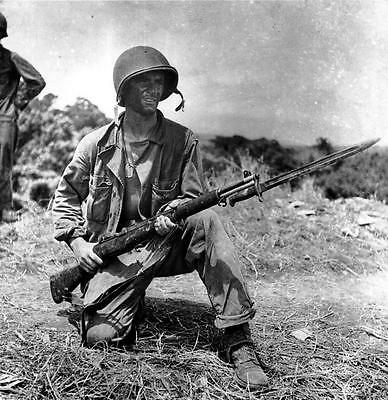
But even if you have, you may be less than clear about how to go about actually purchasing the firearm.
But don’t worry–that’s what I’m here for, and this guide will tell you everything you need to know.
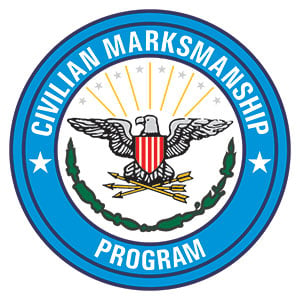
I’ll cover what’s required for eligibility to purchase from the CMP, then talk about the different avenues you have for buying M1911s and rifles from them.
Throughout, I’ll also link you to places on the CMP site where you can find out more and access the paperwork that you need.
Table of Contents
Loading…
What Is the CMP?
But first, let’s talk a little bit about the CMP and why they handle these sales.
The Civilian Marksmanship Program, or CMP, was started in 1903 by the United States Congress under the War Department Appropriations Act in order to encourage and provide opportunities for civilians to learn marksmanship and practice their skills with military-style firearms.
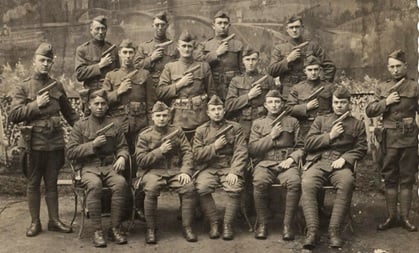
The idea was that if the US had to go to war, we’d have a population that was already skilled with the firearms used by the US Armed Forces and was ready to serve with less need for training.

This was especially important since the military had just adopted the bolt-action M1903 Springfield, but most of the population was only familiar with lever-action rifles, not bolt-action ones.
While the CMP started out as marksmanship training for adults, it has since shifted its focus primarily to youth and safe, responsible use of firearms.
In addition, while the CMP was started by the US government and managed by the US Army until 1996, since then it has been managed by the Corporation for the Promotion of Rifle Practice & Firearms Safety, which was also started by the US government but runs independently as a non-profit that receives no federal funding unless you count the surplus firearms the CPRPFS receives from the Army.
Phew!
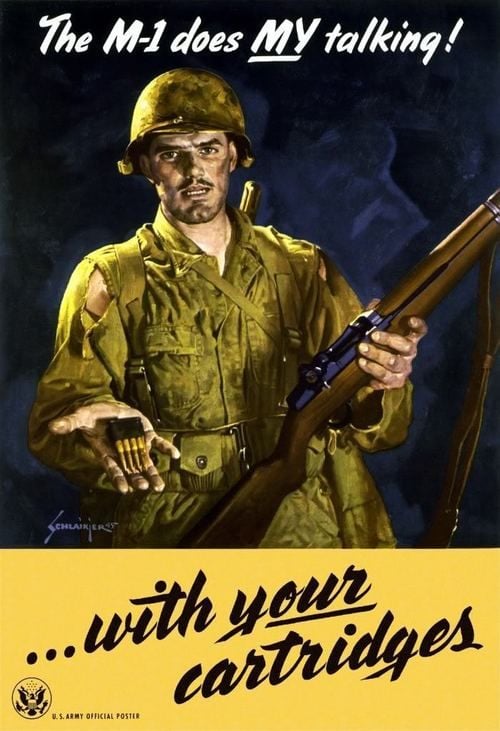
These days, the CMP primarily deals with training classes, competitions, and, yes, sales of surplus firearms. But how do you get your hands on one of these firearms? Well, first you have to make sure that you’re eligible to buy one.
Eligibility
Not just anyone can buy from the CMP, but the eligibility requirements aren’t anything too extreme, and most of us will even have the paperwork proving that we meet the first few requirements already on hand. In addition, the process is also streamlined for repeat customers, so you won’t have to prove all of this every time you order.

In order to purchase from the CMP, you need to be able to prove that you are:
Legally Able to Purchase a Firearm
First, you obviously need to be able to legally own and purchase a firearm.
You’ll just have to fill out the paperwork for an FBI background check like you would buying a gun from any store and if your state requires a license or permit before you possess a firearm, you’ll need to include a copy of it in your order paperwork.

Some states will also have requirements for where your firearm can be shipped, so you’ll need to provide the appropriate paperwork for the dealer to which it will be shipped or showing that it can be shipped to your home.
A Citizen of the United States
Second, you must be a U.S. citizen and be able to prove it.

Proof can be a U.S. birth certificate, passport, enhanced driver’s license (not your standard driver’s license and only available in a few states), certificate of naturalization, or another official government-issued document that shows US citizenship or that you were born in the United States (military IDs must show a rank of E5 or higher).
At Least 18 Years Old (or 21 for M1911 Purchases)
Third, you have to be able to prove that you’re at least 18 years old for rifle purchases and 21 years old for M1911 purchases. Most proof of citizenship will also count for this, but if not, your standard driver’s license or government issued ID will do.

These last couple requirements are the ones that fewer of us will have already met, but they’re still not too difficult to take care of.
It’s worth noting that some states, like California, require you to be 21 years old to purchase rifles. Know your local laws.
A Member of a CMP Affiliated Club or Organization
You need a current membership card or other proof of membership for a CMP affiliated organization. If you’re not already part of one, you can find a CMP affiliated club using the CMP’s Club Search tool. Joining a club is usually around $25 or less.

If you are, but your organization doesn’t provide membership cards, you can just have the club fill out the CMP Club Member Certification Form for you and then you can turn it in with the rest of your paperwork for the order.
However, in addition to shooting clubs, the CMP also counts professional 501(c)3 law enforcement organizations, US Military service (including the National Guard, reserves, and retirees), membership in congressionally chartered veterans’ organizations like the American Legion or Veterans of Foreign Wars, and the Garand Collector’s Association for this requirement.

Also, you don’t have to be part of a CMP affiliate organization to buy instructional materials or CMP merch, but you do in order to buy the good stuff like firearms, parts, and ammo.
Aware of Safe Range Procedure and Safe Firearm Handling
Finally, you’ll need to show proof that you know range procedure and how to safely handle a firearm. That includes documentation of one of the following:
- Current or former military service,
- Current or former law enforcement service,
- Participation in a shooting competition using rifles, pistols, shotguns, or air guns (documented in the form of a copy of the results bulletin),
- The completion of a marksmanship clinic with live fire training or hunting safety course with live firing training (documented by letter from the instructor or a copy of the certificate of completion),
- A concealed carry license,
- An FFL or Curios and Relics License,
- Distinguished, Instructor, or Coach status,
- A CMP Marksmanship Form completed by a law enforcement officer or club or range official observing your shooting.

However, if you’re over 60 years old, you’re exempt from this requirement.
If you don’t have documentation on hand, it’s pretty easy to get the Marksmanship Form filled out at your local range, but if you don’t have one or have some sort of deep-seated vendetta against the range staff, you can find a CMP approved club, clinic, or competition using the CMP Club & Competition Tracker.

Alternatively, it’s never a bad time to go ahead and get your carry license.
Once you have everything you need to prove that you meet all the above requirements, you’ll just attach it to the order packet when you order your firearm!
For more information on eligibility, you can check out the Eligibility Requirements page on the CMP website.
Buying a Rifle
The CMP’s sales program is perhaps best known for selling M1 Garands, but they also sell M1 Carbines, M1917 Enfields, and various air guns.
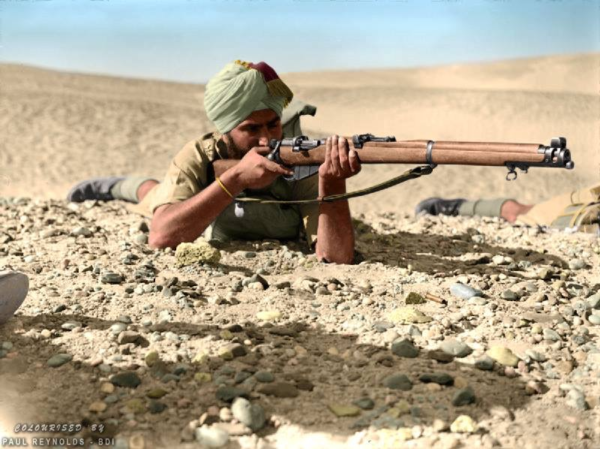
They sell both air rifles and air pistols, but the air pistols fall under the same rules as the rifles, so know that I’m talking about air pistols, too, when I say “rifles” in this section.
You have a few different options for buying a rifle from the CMP.
Mail Ordering a Rifle from the CMP
The most accessible option for most of us is buying through mail order. Just send an order form and all of your proof of eligibility to:
Civilian Marksmanship Program
Attn: Sales
1401 Commerce Blvd.
Anniston, AL 36207
The order form includes instructions to make sure you’ve filled it out properly and got all of your paperwork in order.

The CMP’s rifle sales are exempt from federal laws requiring that firearms are shipped to an FFL holder, so you can just have it delivered to your house, unless your state has additional laws about where firearms can be shipped.
Brick & Mortar CMP Stores
Alternatively, if you happen to live near Anniston, Alabama or Port Clinton, Ohio, or else are willing to travel to either city, you can purchase a rifle at one of the two CMP stores.
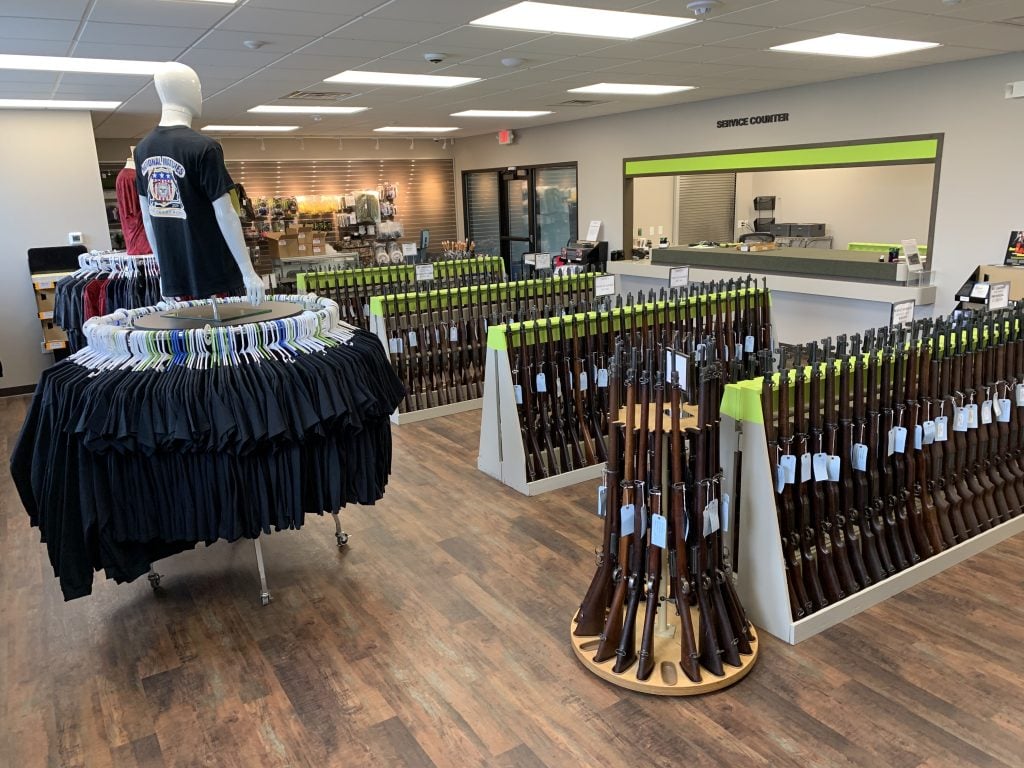
This isn’t dissimilar from buying at a regular brick and mortar gun shop in one of those two states, but remember that ff you live somewhere that requires a license or permit for purchase, you’ll need to show it, and if you buy at the store, but want to have the rifle shipped back home, you’ll still be exempt from federal FFL requirements, but not state ones.
CMP Auctions
The CMP also has an auction site where they list their rarer or more unusual firearms, as well as parts, accessories, and more. If you’re looking for something a little bit different, the CMP auction is a great place to find it.

Buying an M1911
The process for buying a 1911 from the CMP is different from (and much less straightforward than) the process for buying rifles since it’s governed by different laws and technically handled by a separate entity, M1911.
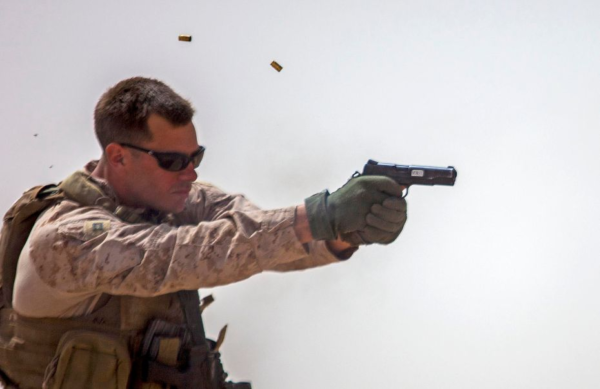
There has only been one round of 1911 sales so far, selling 8,000 1911s transferred to the CMP in early 2018.
However, the CMP received 19,000 sales packets from interested buyers, even with a limit of one per customer.

That’s a lot of packets to process, including ensuring that each one is from an eligible buyer, that each one is complete, and that there aren’t multiple packets from the same person trying to improve their chances of getting an M1911 (you know who you are, shame on you)–and CMP 1911 isn’t exactly a massive organization with tons of people to handle all of that.
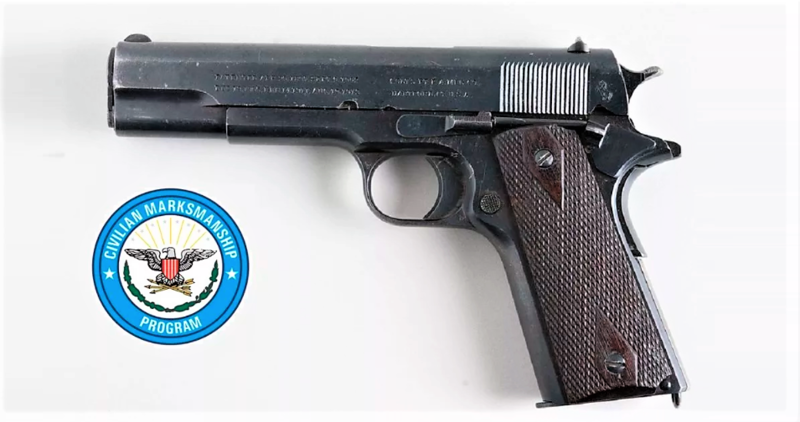
On top of that, each packet requires more work than an order for a CMP rifle, since the law requires an additional NICS background check for 1911 purchases to ensure that the buyer can legally own a 1911-style gun and 1911 sales are not eligible for the FFL shipping exception that applies to the CMP’s rifle sales.
In addition, CMP 1911 is separate from regular CMP sales, so each customer had to be treated as a new one, with no records from previous CMP sales to simplify and streamline the process.

And, since the demand exceeded the supply by so much, the CMP conducted a lottery to determine who would get a 1911, but it took several months to get those numbers distributed.
When 1911 sales began, the idea was that additional 1911s could be transferred to the CMP each year (but never more than 10,000 in a single fiscal year), but it doesn’t appear that the CMP received any in 2019.
That’s probably for the best, so they can finish dealing with the sales from 2018. On the other hand, it would be nice to know when the next opportunity to buy a surplus M1911 will be.
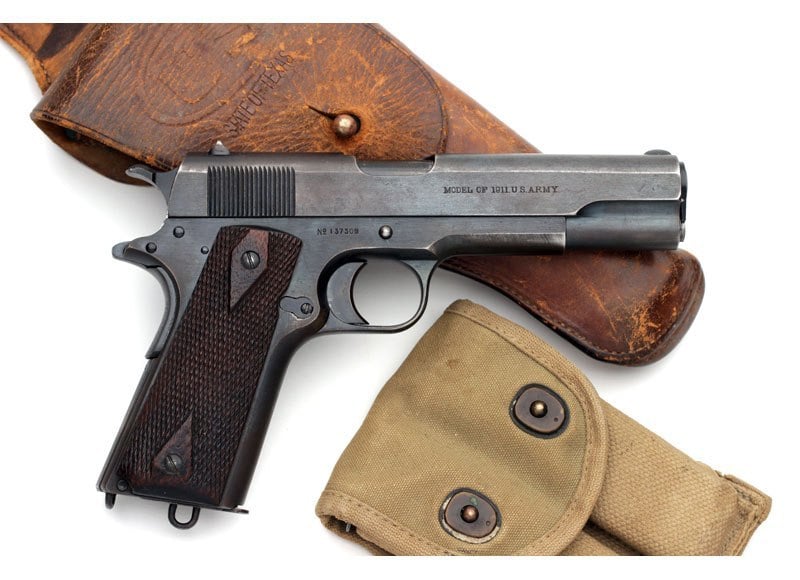
Between the backlog of orders making it unclear when the CMP will sell new 1911s and the fact that the CMP’s 1911 sales information webpage is unfortunately pretty confusing, the best way to stay on top of what you need to do when is to sign up for the CMP’s sales updates email newsletter.
Fortunately, things seem to be calming down and pistols have been shipping out since around the middle of 2019, so hopefully, CMP 1911 will be selling more pistols this year.

And, while the CMP’s auction site mostly carries rifles, parts, and accessories, some 1911s described as “rare, odd, special, commercial pistols” did go onto the auction site during the first round of sales, so it’s worth keeping an eye out for one if you don’t luck out in the lottery next go around.
Other Ways to Buy
If you’re just looking for parts, ammo, and other items, but not firearms, you have a few more options.
CMP Online Store
The CMP EStore sells parts, tools, targets, ammo, equipment, various CMP merch, and more. Again, the only way to buy complete firearms online from the CMP is through the auction site.
By Phone
If you’ve purchased from the CMP before and have therefore already proven eligibility, you can order certain things, including ammo and parts, by phone.
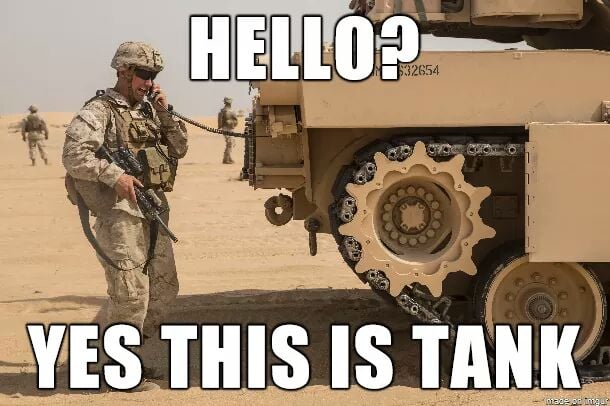
If ordering by phone, you have to pay with a credit card. You can call Monday through Friday between 9am and 2pm CST. The number is 256-835-8455.
By Fax
If it’s still 1980 wherever you live, you can also order via fax by sending your paperwork, including phone and fax numbers, to 256-831-8331.

A Few More Things to Know
That about wraps things up on buying from the Civilian Marksmanship Program, but there are a few final things that you should know before ordering.
First, the condition of CMP guns is frequently not great. After all, many of these firearms have actually seen service, and there’s a reason the military doesn’t want to hold on to them.
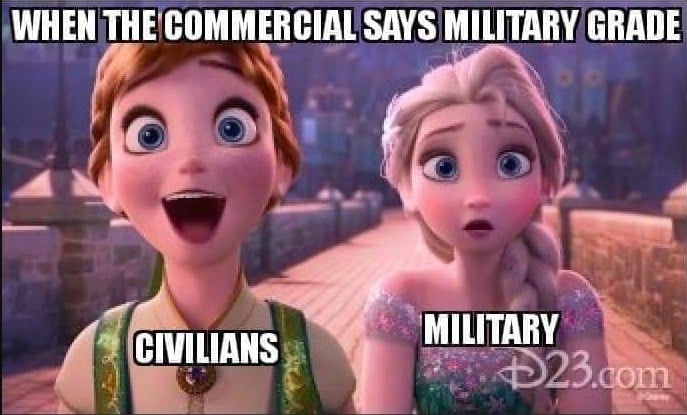
Most of these firearms, including the M1911 and M1 Garand, are available at a few different grades, or levels, of condition at different prices. Obviously, the better the condition, the higher the price.
Make sure to choose the right grade on your paperwork to avoid being charged more than you expected or getting a gun that’s in worse condition than you wanted.

Similarly, if you pay with a cashier’s check, money order, or personal check (the CMP also takes Visa, Mastercard, American Express, and Discover cards), make sure you’re also including the cost of shipping. Shipping rates can be found on the CMP’s Ordering Information page, linked below.
In addition, you should also be aware that some firearms have limits on the number that can be bought per year.

For example, we already covered that M1911s were limited to one per purchaser and M1 Garands are limited to eight per person per calendar year with sales of M1 Garand receivers counting towards that total.
Finally, you’ll want to check out the CMP website’s Ordering Information and Sales FAQ pages for a rundown of your purchasing options and more information about what to expect during the purchase and delivery process, straight from the horse’s mouth.
Are you planning to order from the CMP? Do you have any questions about how to navigate the process? Have you ordered from the CMP before? If so, do you have any tips for making it as smooth as possible? You might also like the Best Historical Guns You Can Still Buy!

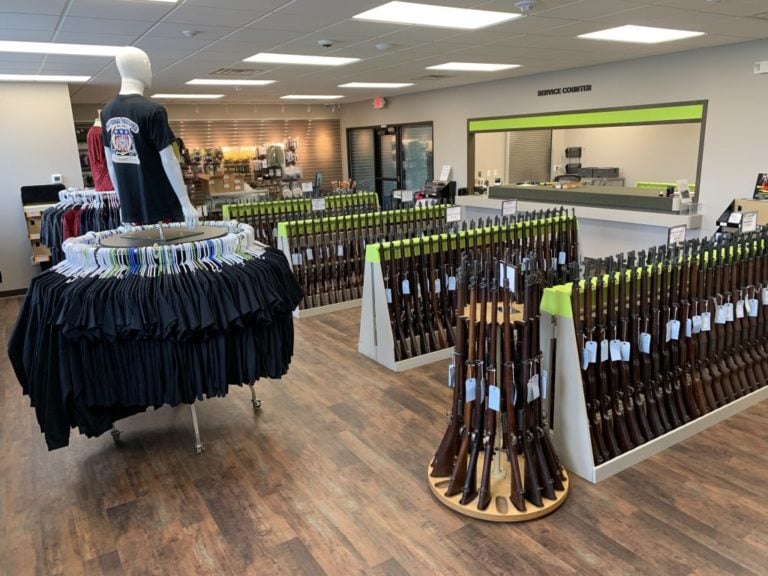



3 Leave a Reply
My first rifle was and M-1 grand and i Love to own and other .I have a Concealed Carry License in Indiana . More then willing to join your club. Thank You
Can CMG extend membership to non US citizen. I wanted to own an M1Garand rifle. Philippines where i live will return some 86k of these items to the US Army
I bought three CMP rifles back in the day: two M1 Garands and one M1903A1 Springfield. At the time, I thought they were cool. Today my interest in historical rifles has waned. These rifles are for people who value historical firearms regardless of cost or how well they shoot. The process described above is accurate. CMP is slow, bureaucratic, and nit-picking. The only folks who can truly find value at CMP are collectors and participants in the John C. Garand matches; even then, value is largely a matter of chance unless you are willing to pay premium auction prices. Make no mistake: CMP is in business to make money and their prices are stratospheric. If you are a match shooter, after you have acquired the rifle be prepared to pay a lot of money for gunsmithing and accurizing within the rules of your discipline. I used a place called National Match Armory who did an exceptional job on my rifles. Cannot say enough good things about Eric Pierce except that he is not cheap. CMP is the place to go for well-heeled hobbyists. Now that I am well-equipped as an infantryman circa 1940, I find that I seldom shoot these rifles because .30-06 is not cheap, even surplus if you can find it. Now I have three obscenely expensive safe queens. Since I am neither a collector nor a John C. Garand match participant, I realize that I could have invested the money I spent on these rifles much more effectively in additional training and ammo for the rifles I do shoot. Buyer beware and think hard about buying from CMP unless you are a collector or match participant and willing to pay the price.